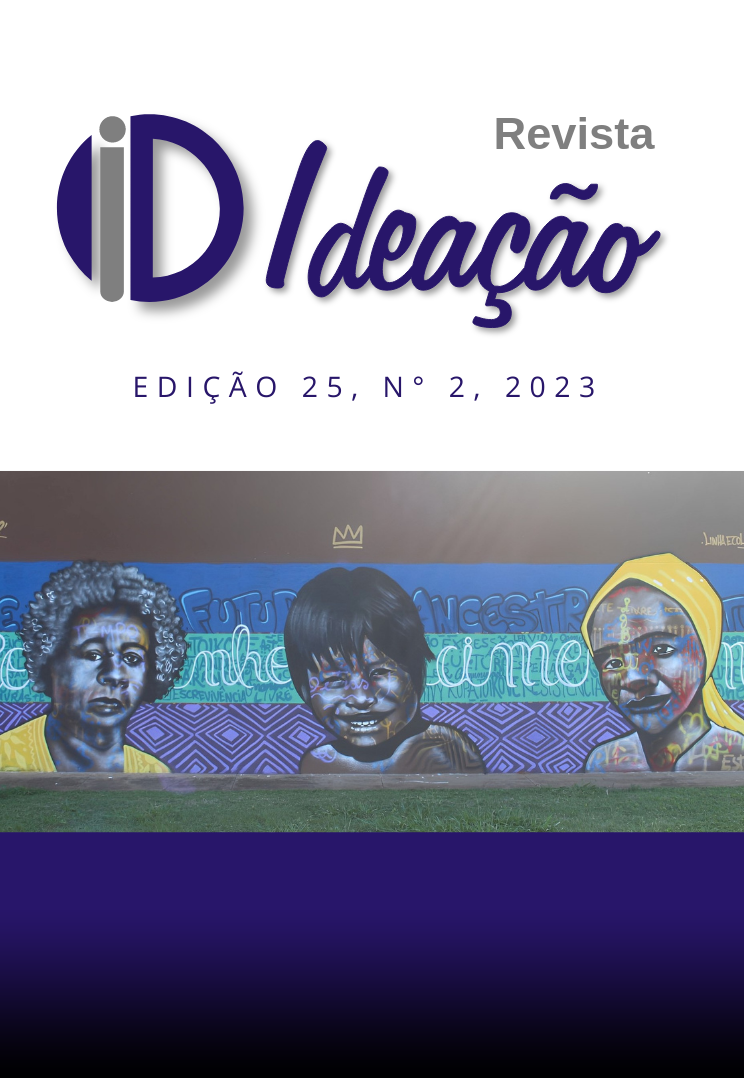Triagem auditiva neonatal (TAN): compreensão de mães a partir de recurso fotográfico
DOI:
https://doi.org/10.48075/ri.v25i2.30504Palavras-chave:
Saúde Pública, Triagem Auditiva Neonatal, Humanização, Fonoaudiologia, FotografiaResumo
O estudo buscou compreender o momento da TAN para mães atendidas em uma clínica-escola de fonoaudiologia. De cunho descritivo, qualitativo, parecer - 5.240.496, a pesquisa ocorreu em três momentos na TAN, no primeiro efetuou-se a caracterização das mães e seus bebês por meio de questões objetivas. No segundo momento, durante a captação das emissões otoacústicas, foi realizado o registro de uma fotografia, que foi disparadora de uma entrevista no terceiro momento. Participaram cinco mães, com faixa etária média de 30,6 anos. Houve a predominância da escolaridade ensino médio completo e a atividade laboral no setor de comércio. Todos os bebês foram a termo, com idade média atual de 30 dias. Não houve presença de Indicadores de Risco para a Deficiência Auditiva (IRDA) e nenhum bebê “Falhou” no teste. A compreensão das mães sobre o momento da TAN evidenciou antagonismos de sentimentos, como o cuidado, afetividade, satisfação pela realização do teste, conhecimento sobre a audição do bebê, tal como insegurança pelo procedimento e possíveis resultados. O momento do teste constitui-se da vivência de expectativas singulares, e as experiências anteriores com intervenções provocaram impactos sobre este momento, assim como a redução do sofrimento pelo já conhecimento existente. As mães relataram que a fotografia foi um importante registro do cuidado auditivo de seus filhos. Conclui-se que a intervenção realizada no momento da TAN promoveu uma pluralidade de sentimentos, que demandam a necessidade de se promover ações voltadas para a humanização dos cuidados em saúde auditiva.
Downloads
Publicado
Como Citar
Edição
Seção
Licença
Copyright (c) 2023 Direitos partilhados conforme licença CC BY-NC-SA 4.0

Este trabalho está licenciado sob uma licença Creative Commons Attribution-NonCommercial-ShareAlike 4.0 International License.
Política para Periódicos de Acesso Livre
Autores que publicam nesta revista concordam com os seguintes termos:
1. Autores mantém os direitos autorais e concedem à revista o direito de primeira publicação, com o trabalho simultaneamente licenciado sob a Licença Creative Commons Attribution que permite o compartilhamento do trabalho com reconhecimento da autoria e publicação inicial nesta revista.
2. Autores têm autorização para assumir contratos adicionais separadamente, para distribuição não-exclusiva da versão do trabalho publicada nesta revista (ex.: publicar em repositório institucional ou como capítulo de livro), com reconhecimento de autoria e publicação inicial nesta revista.
3. Autores têm permissão e são estimulados a publicar e distribuir seu trabalho online (ex.: em repositórios institucionais ou na sua página pessoal) a qualquer ponto antes ou durante o processo editorial, já que isso pode gerar alterações produtivas, bem como aumentar o impacto e a citação do trabalho publicado (Veja O Efeito do Acesso Livre).
Licença Creative Commons
Esta obra está licenciada com uma Licença Creative Commons Atribuição-NãoComercial-CompartilhaIgual 4.0 Internacional, o que permite compartilhar, copiar, distribuir, exibir, reproduzir, a totalidade ou partes desde que não tenha objetivo comercial e sejam citados os autores e a fonte.


